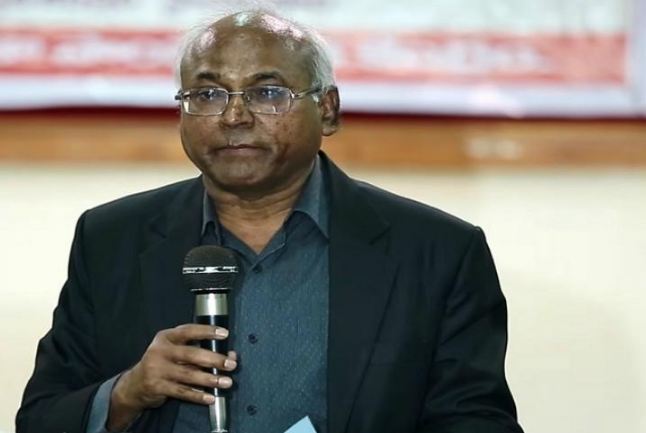How to contact Kancha Ilaiah? Kancha Ilaiah’s Contact Address, Email ID, Website, Phone Number, Fanmail Address
Hello friends! Are you a follower of Kancha Ilaiah? Are you searching on google for How to contact Kancha Ilaiah? What is Kancha Ilaiah’s WhatsApp number, contact number, or email ID? What is Kancha Ilaiah’s hometown and citizenship address? What is Kancha Ilaiah’s Facebook, Twitter, or Instagram ID?
Do you have a question; how do I send a fan mail and autograph request to Kancha Ilaiah? Please prepare a nice and well-explained autograph request letter. Don’t forget to use simple language and easy-to-understand sentences for quick understanding.
Find out all these things in our article below…
Today I will tell you about HOW TO CONTACT KANCHA ILAIAH.
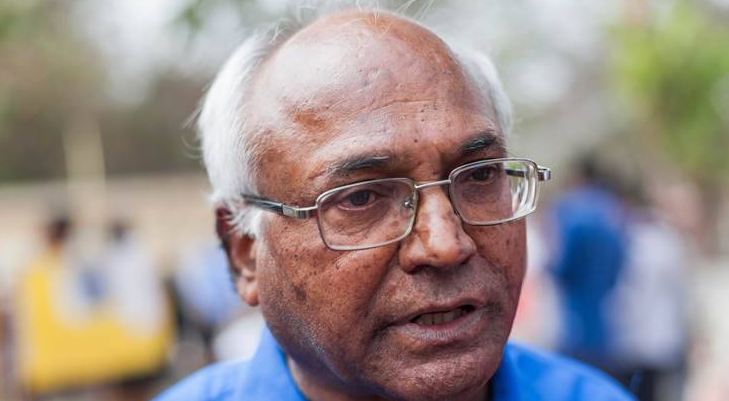
Born on October 5th, 1952, Kancha Ilaiah Shepherd is an Indian political thinker, author, and activist for Dalit rights. He has been active in the movement since his birth. He is a writer who is fluent in the Telugu and English languages. The elimination of caste systems is the primary focus of his academic and political work. Papaiahpet is located in the Warangal district of the Chennaraopet Mandal in Hyderabad, which is in Telangana. Kancha Ilaiah was born there.His family was a member of what is known as an Other Backward Class in India, a social category established by the Indian government.
Kancha Komuraiah, Ilaiah’s father, was seldom at the house because he spent his time grazing sheep. His mother was the most authoritative person in the household. Ilaiah attributed significant responsibility for developing his political philosophy to his mother, Kancha Kattamma. Ilaaih is from a family of shepherds. Thus, he added the word “Shepherd” to the end of his name as a symbolic gesture. Ilaiah was honored with a Master of Arts degree in political science as well as a Master of Philosophy degree for his research on the topic of land reform in undivided Andhra Pradesh.
In addition, he has been honored with the Mahatma Jyotirao Phule Award and served as a Nehru Fellow between 1994 and 1997. His dissertation, titled God as Political Philosopher: Buddha’s Challenge to Brahminism, was the capstone of Ilaiah’s research on Buddhism’s political aspects, earning him a doctoral degree in the subject. Ilaiah has advocated for the education of Dalits in the English language because it would enable Dalits in India to intellectually connect with the world outside of India without having to rely on non-Dalits to speak “for them.”
Ilaiah added the surname “Shepherd” to his name in May of 2016 to protest against what he calls the “Brahmanic hegemony” still in India. This decision represented for Ilaiah both an acknowledgement and a reaffirmation of his family’s background. It means a symbolic break with the cultural standards that Ilaiah claimed Brahmins attempted to “impose” on Indian culture. “Shepherd” is designed to illustrate this split by being a proper noun in English rather than its counterpart in an Indian language.
Ilaiah describes changing his name as a weapon to shatter these conventions and to recognize the labor of what he refers to as “productive classes,” which includes Scheduled Castes and Other Backward Classes (OBCs).Kancha Ilaiah is an Ambedkarite.Ilaiah is sometimes misrepresented as a Dalit by the media due to his work as an activist against caste discrimination. Ilaiah considers himself to be an intelligent member of the Sudra caste.
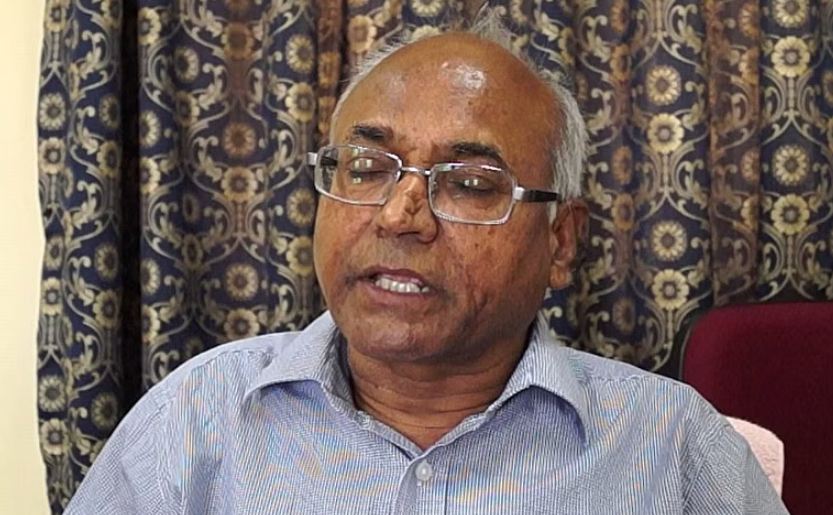
During the time that Ilaiah was employed as an associate professor in the Department of Political Science at Osmania University, a number of his coworkers and academics affiliated with the university expressed, in an open letter, their concern concerning certain articles and opinions that Ilaiah had contributed to a local newspaper. They also advised him against writing material inflaming sectarian discontent or prejudice.
Ilaiah claimed in November 2015 that India “would have become Pakistan” if Vallabhbhai Patel, the first Deputy Prime Minister of the Republic of India who is credited with forging national unity amidst the intense violence and bloodletting that followed the creation of Pakistan, had been Prime Minister of India instead of Indira Gandhi. In April 2016, Ilaiah made a contentious comment when he said that vegetarianism is anti-nationalism.
T. G. Venkatesh, a significant leader of the Arya Vysya and a member of the Indian Parliament representing the Telugu Desam Party, said during a news conference on September 18, 2017, that Ilaiah was a traitor and should be executed since his writings were “intended to divide society.” Venkatesh made these statements about Ilaiah’s work. Ilaiah made the allegation that members of the Arya Vysya group had attempted to murder him and filed a police complaint in 2017 after the Arya Vysya community assaulted his vehicle. He claimed that members of the Arya Vysya community had tried to kill him.
After members of the Vysyas group staged protests and called for the book to be banned, the Chief Minister of Andhra Pradesh, Chandrababu Naidu, decided in September 2017 to prohibit Ilaiah’s book Vyshas because it “hurt the sentiments of another community.”Under the direction of IV Krishna Rao, Chairman of the Andhra Pradesh Brahmin Corporation, Brahmin Associations in the states of Andhra Pradesh and Telangana torched effigies of me on May 15 and 16, delivered condemnation speeches, and visited my office at the Maulana Azad National Urdu University in Hyderabad. All of these events took place over two days. He served in the role of chief secretary of Andhra Pradesh in the past.
On May 16, around 15 men were dispatched to my workplace, reportedly by Rao. These individuals afterward published false claims and partial truths about me in Telugu news media. Rao is believed to have been behind this plot. These individuals, who identified themselves as Brahmins, contacted my workplace and issued a threat, saying that they would do to me with their strong axe what their ancestor Parashurama did to the Kshatriyas. They called my office. In a fictional account, it is not well known that Brahmin Parashurama was responsible for the deaths of hundreds or perhaps thousands of Kshatriyas. However, this is a very horrible tale.
On May 26, 2016, a complaint was lodged against me at the Saroor Nagar Police Station in Hyderabad under the provisions of Indian Penal Code sections 295A (deliberate and malicious acts intended to outrage religious feelings of any class by insulting its religion or religious beliefs), 153A (promoting enmity between different groups on the grounds of faith), and 298 (uttering, words, or other expressions with the deliberate intent to wound the religious feelings of any person).On the other hand, militant Brahmin caste organizations are a relatively recent phenomenon, starting when the Bharatiya Janata Party took office in New Delhi in 2014.
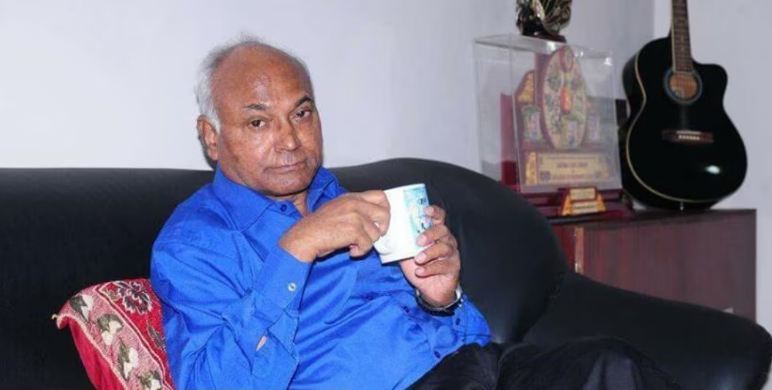
The tendency is most clearly seen in places where even regional parties are now in control. This militancy of the Brahmin community has risen inside the country, which poses a danger to the freedom of expression within the nation. In his newly released book, “From a Shepherd Boy to an Intellectual,” Kancha Ilaiah Shepherd details his journey from humble beginnings as a shepherd boy to a successful career as a social scientist and activist in India’s traditionally caste-based culture. Shepherd was born into a family that belonged to the Shudra caste in the hamlet of Papaiahpet, which is located in what is now the state of Telangana but was once a part of the princely state of Hyderabad.
Both he and his brother were the first members of the family to learn to read and write, as well as to pursue an education of a more conventional kind and to abandon their family’s customary profession of shepherding. Shepherd went on to write other in-depth and critical investigations of caste, such as “Why I Am Not a Hindu” and “Buffalo Nationalism,” which have resulted in threats and assaults against him throughout his career. (Here is where you may read Shepherd’s work published in The Caravan.) In this section of the text, he discusses the first time he and his family interacted with the Indian educational system.
In the middle of my mother’s daily routine of sprinkling buffalo and cow dung water, Rajalingam showed up at my home unexpectedly one morning. He had been dressed in slacks and a bush shirt, and he had rubber slippers on his feet. His spotless white feet were the primary feature that drew me in. I first thought he was an odd guy from another universe because he had curly black hair and a somewhat long face. He was nothing like the other males I had encountered up to that point. In my village, what he wore was considered fancy clothes.
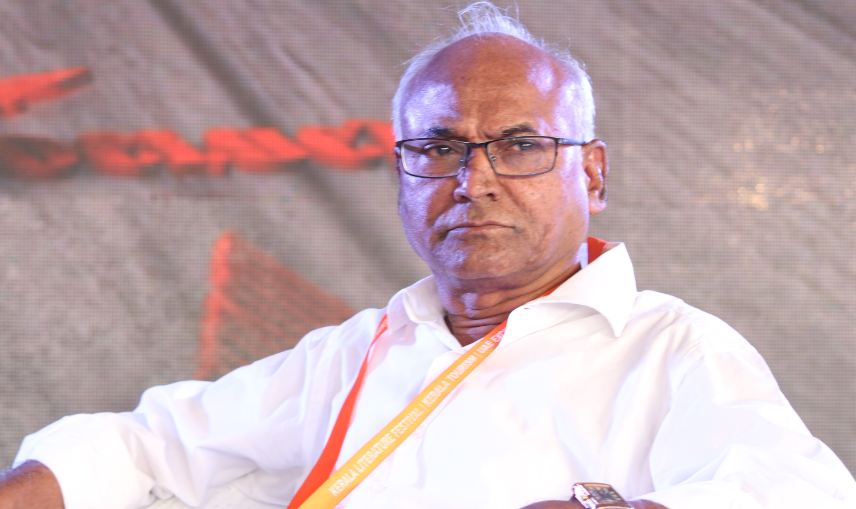
His face was red, long, and roundish, and his hair was jet black and exceptionally neatly combed, giving him the appearance of a different animal from the others in the town. While he was respectfully standing in the corner, my mother hastily abandoned her job, pulled out a cot, and placed a bed sheet on it as soon as he arrived home. Meanwhile, he was standing there. He then asked her to consider enrolling us in school starting with that school year, after which he exited the conversation. She researched who else was taking their children to school and acquired some information about them.
It came to her attention that Kore Veeraiah, a fierce adversary, had enrolled his eldest daughter, Komuramma, in school during that same academic year. She was the same age as I was. My mother asked one of our closest relatives, Anna Komuraiah, who was literate and could read and write, for her view on the matter. He agreed with her recommendation that she enroll us in classes. Rajalingam was a taskmaster whose primary goal in life was to impart as much knowledge as possible. In less than a month, he instructed us on the alphabet.
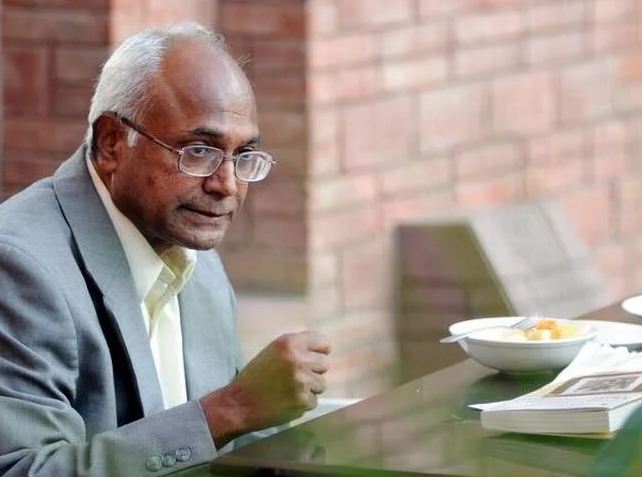
Kancha Ilaiah Fan Mail address:
Kancha Ilaiah,
Papaiahpet, Warangal
Chennaraopet Mandal,
Hyderabad, Telangan,
Around a further half of a month later, lessons covering numbers up to 100 were given. By that point, we were used to the process of counting numbers. We used to measure the sheep every morning after ours were separated from the main pool of sheep in the hamlet. This was necessary since the sheep often became confused during the night. Both shepherds and dhobis are well-known for their ability to count since the former counts animals while the latter counts garments.
Even if the term “scholar” could be up to an argument, Kancha Ilaiah exemplifies the very definition of what it means to be a controversial scholar. Despite this, his book “Why I am Not a Hindu: A Sudra Critique of Hindutva Philosophy, Culture, and Political Economy” was selected as a millennium book by “The Pioneer,” which is considered to be one of the most influential publications in the nation.
He is now working in Hyderabad at the Maulana Azad National Urdu University (MANUU) as the Centre for Social Exclusion and Inclusive Policy Director. Before that, he worked at Osmania University as an associate professor in the Department of Political Science.
The peculiar nature of Ilaiah’s perspectives on Indian culture in general and Hindu society in particular, as well as on Indian history, are the primary factors contributing to the controversy surrounding him.
(2) Nickname: Kancha Ilaiah
(3) Born: 5 October 1952 (age 70 years), Papaiahpet
(4) Father: Kancha Komuraiah
(5) Mother: Kancha Kattamma
(6) Sister: Not Available
(7) Brother: Not Available
(8) Marital Status: Married
(9) Profession: Writer
(10) Birth Sign: Taurus
(11) Nationality: Indian
(12) Religion: Buddhism
(13) Height: Not Available
(14) School: Not Available
(15) Highest Qualifications: Osmania University (M.A. Political Science), Osmania University (M.Phil Political Science)
(16) Hobbies: Not Available
(17) Address: Papaiahpet, Warangal district of Chennaraopet Mandal in Hyderabad, Telangana State
(18) Contact Number: 91-23008335
(19) Email ID: Not Available
(20) Facebook: https://www.facebook.com/Unofficial.page.Fan.Page/
(21) Twitter: Not Available
(22) Instagram: https://www.instagram.com/explore/tags/kanchailaiah/
(23) Youtube Channel: Not Available
Also Checkout: How to Contact Binayak Sen: Phone Number, Contact, Whatsapp, Fanmail Address, Email ID, Website
